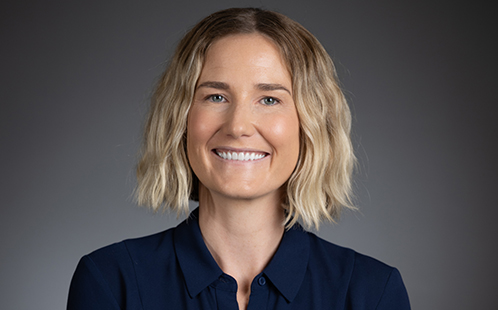
Dr Chloe Goldsmith’s love of science began with the inspiration of her high school teachers. Today, she is leading research in biomedical genetics and infectious diseases at Western Sydney University’s School of Science, on a mission to help people.
“I think the passion of my high school teachers was key to opening up my world to science. Biomedical genetics and infectious disease though, that speciality came later in my career,” she said.
A defining moment came during her PhD in cancer research, when she visited a local hospital in Newcastle to perform an experiment and tour the research facilities at the Hunter Medical Research Institute (HMRI).
“I was amazed at what was possible with some of this equipment! To get to quantify things in our DNA, exploring health and disease at the molecular level was absolutely inspiring. I wanted to learn more about our molecular world. I then went on to do postdoctoral training in biomedical genetics (epigenetics), focusing on immunology and infectious disease. And here we are now!”
Since then, Chloe has specialised in biomedical genetics and epigenetics focusing on immunology and infectious disease, fields at the forefront of medical breakthroughs.
Her workdays are varied, but the best days are spent hands-on in the lab with her students.
“Some days are spent with a mix of teaching and meetings. Other days are spent writing grants. But the best days are spent working on my research. A day like that will look like, supervising my students in the lab – performing experiments and having fun doing it, followed by having a lab meeting to discuss results, or writing code to make pretty graphs of our data that is needed to put into papers.”
This Science Week, Chloe reflects on the significance of her work and the broader importance of scientific discovery.
“I work on understanding fundamentals about our biology (epigenome), as well as what goes awry to understand how disease develops. This is really important to pinpoint how we can prevent and treat diseases. Which is essential to meeting health challenges that are faced by society.”
One recent project has been especially meaningful. Chloe led a study involving patients with autoimmune diseases, collecting blood samples to explore unique genetic and immune system traits.
“Getting to discuss with patients what their needs were, and how desperately they wanted to understand their pathology, was really inspiring. Especially in a disease that we have little clue to how and why it develops, like autoimmune disease. I do science to help people. And getting to see and talk directly with the people I am trying to help is a really powerful motivator.”
Her advice for students who are curious about medical science but unsure where to start is simple.
“Start with any science degree and see how you like it. Medical science and biomedical science is a great place to start that offers flexibility for majors where you can tailor a degree to suit your interests. Or you can speak with an Academic Program Advisor at Western Sydney University to see what your majors could look like.”
“Science is fun! It takes a combination of creativity, an open mind, and critical thinking to be a scientist. And these things can be so much fun at any age or career level. Everyone starts out with a thirst for knowledge, and scientists are just big kids who never grew out of that stage.”
ENDS
7 August 2025